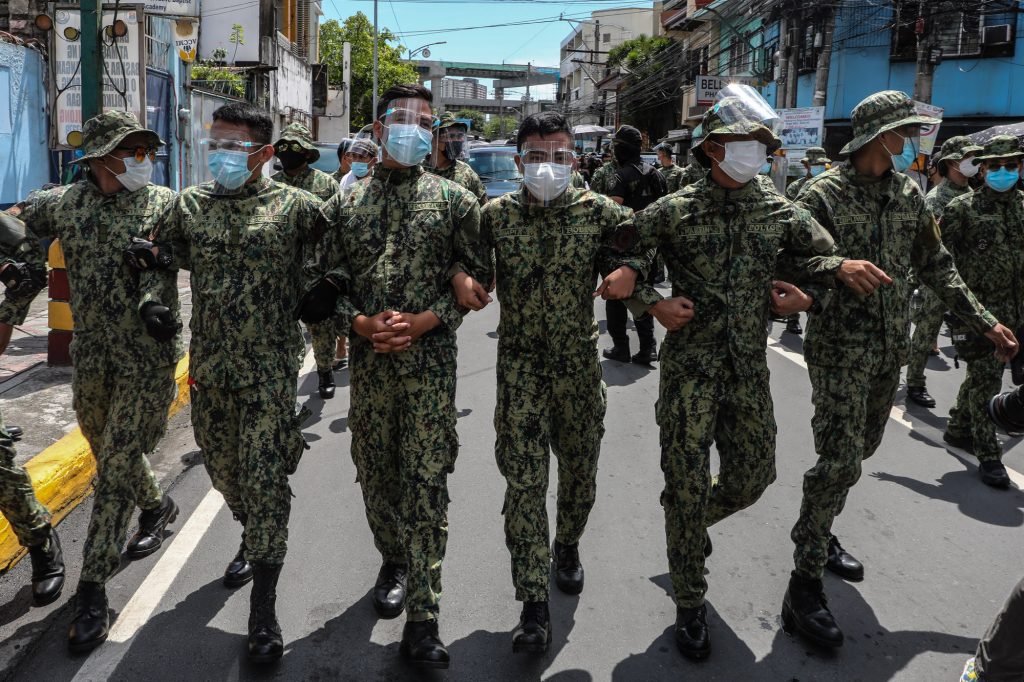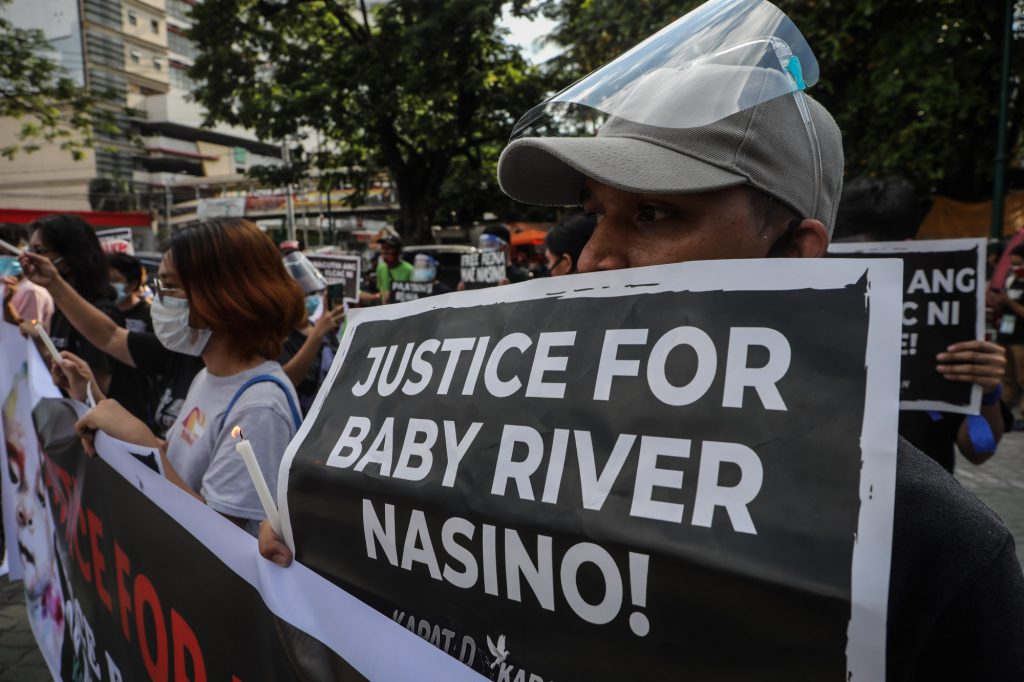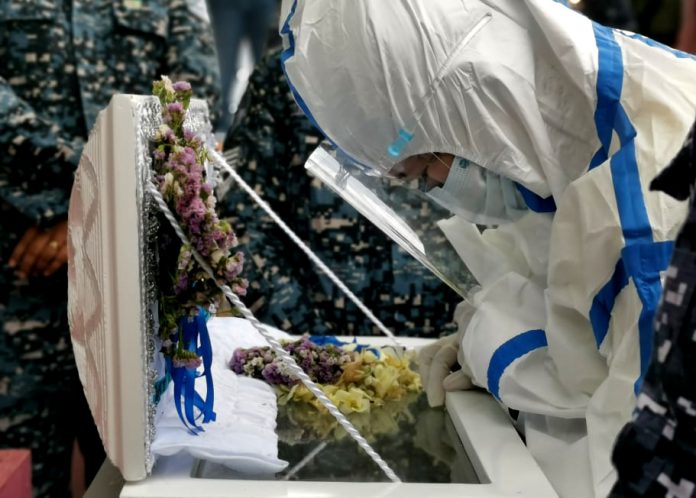Faith-based and human rights groups lambasted Philippine authorities for alleged “lack of compassion” for a political detainee who attended the funeral of her three-month-old baby this week.
Security officials deployed armed personnel, including a unit of the national police’s elite forces, to the funeral of Baby River Emmanuel Nasino, daughter of political detainee Reina Mae Nasino.
Nasino, a 23-year-old urban poor community organizer, was arrested last year on charges of illegal possession of firearms and explosives.
The Promotion of Church People’s Response said security personnel showed “lack of compassion and respect” when they tried to cut short the time for Nasino to mourn the death of her child.
The group called it an “un-Christian act.”
Reverend Irma Balaba of the Promotion of Church People’s Response said the government could have simply allowed the family to “grieve peacefully.”
She said the display of power by the police was “misplaced” and “unnecessary,” adding that it only resulted in “tension” and “traumatized the people who attended the supposed solemn rite.”
Nasino gave birth to Baby River on July 1 in detention.
A few days later, the infant was taken away after the courts denied the detainee’s petition to post bail and stay in hospital.
Nasino sought either hospital arrest with her child or a provision of a special prison nursery, citing the unhealthy conditions at the city jail and the coronavirus pandemic.
On September 24, Baby River was hospitalized due to pneumonia.

In the early morning of October 9, the National Union of Peoples’ Lawyers filed an urgent motion for the temporary release of Nasino to allow her to take care of Baby River because the child “was no longer responding to medications and may expire any moment.”
The child died a few minutes before nine o’clock in the evening of October 9.
Early this week, Nasino’s legal counsel sought a three-day furlough to allow her to mourn.
Jail officials, however, opposed the appeal, citing “lack of personnel” to guard the political detainee as ground.
The courts decided to grant Nasino a six-hour furlough to visit the wake of her child. About 50 uniformed personnel escorted her when she visited the wake on October 14.
Faith-based human rights group Isaiah Ministry reminded the national police that “a funeral service is a solemn rite to show respect to the deceased and the grieving relatives.”
“Even the families of the world’s most cruel dictators were given the time to grieve. Why can’t we give it to the family of a three-year-old child?” said Father Dionito Cabillas, lead convener of the group.
The priest stressed that political and ideological differences “should not hinder us from showing mercy and compassion to people who lost their loved ones.”
“It is the right of every human person to mourn and it is the obligation of the public to respect that right. It is also our obligation to allow dignified and solemn funeral rites,” he added.

Norma Dollaga of the group Kasimbayan decried the court’s denial of Nasino’s appeal to take care of her newborn and the recent petition for a three-day furlough.
“The court could’ve been kind, but it chose to be cruel,” she said, adding that authorities were to blame for the death of a three-month-old infant who was “deprived of life.”
“Refusing her the sustenance of milk from her mother’s breast, the court betrayed her future. It stole a child’s life even before she had the chance to do more than begin to live,” she said.
Dollaga said the court could have corrected its wrong decision on Nasino’s appeal “if it allowed her peaceful and private days to mourn.”
“This tragic event involving an innocent child and a political prisoner is a manifestation of a cruel and rotten judicial system. Nasino is not even convicted. She has all rights,” said Dollaga.









